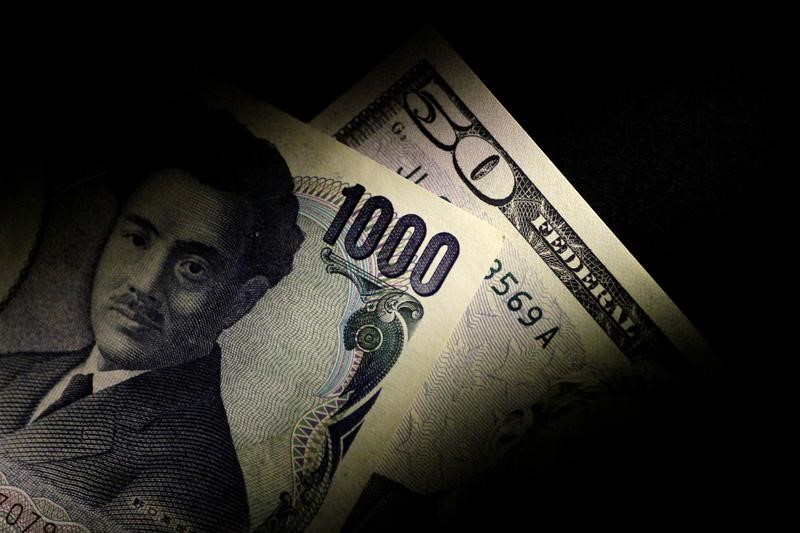By Peter Nurse
Investing.com - The U.S. dollar weakened in early European trade Monday, with the yen in demand following a report that the Japanese authorities could be set to adjust the country's inflation target.
At 03:00 ET (08:00 GMT), the Dollar Index, which tracks the greenback against a basket of six other currencies, fell 0.3% to 104.035.
USD/JPY fell 0.6% to 135.84 after local Japanese press reported over the weekend that the country's Prime Minister Fumio Kishida was considering issuing a joint statement with the Bank of Japan, probably next year, which would allow more flexibility around the 2% inflation goal.
Such a move would likely mean a potential policy shift in the central bank's ultra-accommodative stance, which has seen Japanese interest rates stick to near zero while other major central banks have aggressively hiked rates to combat soaring inflation, to the detriment of the yen.
The BoJ holds its final meeting for the year early Tuesday and is widely expected to hold interest rates at the current ultra-low levels. However, any commentary on a possible shift in tone will be closely watched.
The Federal Reserve, the European Central Bank, the Bank of England and the Swiss National Bank, among others, raised interest rates by 50 basis points last week, and hinted at further hikes ahead with inflation remaining highly elevated.
EUR/USD rose 0.5% to 1.0634, ahead of the release of the German Ifo business climate index for December.
This is expected to show a small improvement to 87.4 from 86.3, following on from last week's PMI data, which showed that the downturn in German economic activity moderated for a second straight month, indicating that a likely recession in the bloc will be shallower than previously thought.
ECB Vice-President Luis de Guindos speaks in Madrid later Monday, and his comments will be studied after his ECB colleague Klaas Knot said on Friday that the central bank has a long way to go in raising interest rates than the Federal Reserve, but ultimately won't raise its rates to the same level as its U.S. counterpart.
GBP/USD climbed 0.5% to 1.2203, with sterling rebounding having fallen 1% last week on concerns the Bank of England may be nearing the end of its tightening cycle as the country's economy enters recession.
The risk-sensitive AUD/USD rose 0.6% to 0.6722, while USD/CNY edged 0.1% higher to 6.9814, as China attempts to cope with a sharp rise in COVID infections, which could delay a full reopening of the country's economy.
